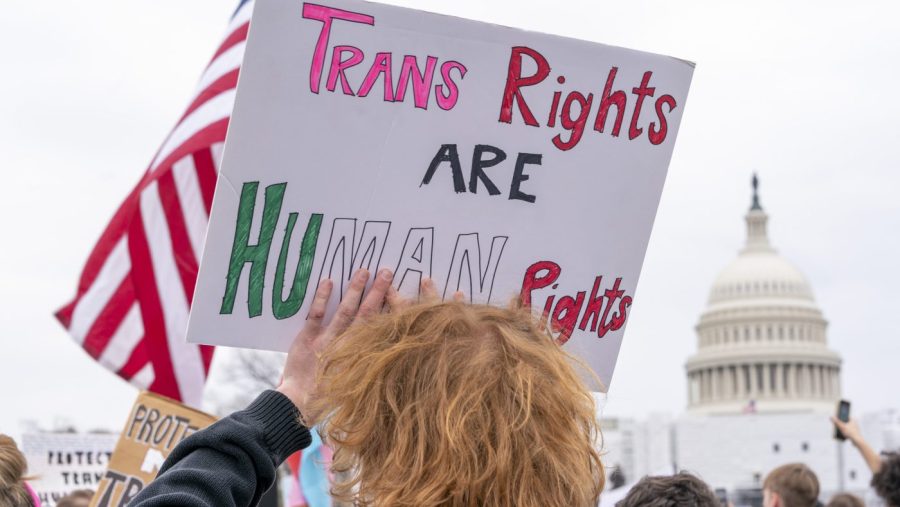The Supreme Court will hear arguments Wednesday in a lawsuit challenging Tennessee’s ban on gender-affirming medical care for minors, a landmark case whose outcome could have wide-reaching implications for the future of transgender health care in the U.S.
It marks the first time the justices will weigh in on the issue, which could impact laws passed by 24 Republican-led states since 2021 that ban medications like puberty blockers and hormones for transgender children and teens. Legal challenges mounted by transgender youths, their families and medical providers have been met with mixed results, and federal appeals courts have split over whether the bans are constitutional.
A district court judge initially blocked Tennessee officials from enforcing the law, Senate Bill 1, which Republican Gov. Bill Lee signed in 2023. A panel of the 6th U.S. Circuit Court of Appeals later overturned the lower court’s ruling, allowing the ban to take effect.
“Since Tennessee banned my minor patients from accessing these treatments, many have been forced to travel great distances just to maintain access to the health care that they need,” said Dr. Susan Lacy, a Memphis gynecologist who provides gender-affirming care.
“I’m fearful for the many others whose families cannot afford to do the same and must watch their children suffer, knowing treatment for that suffering has been denied to them by politicians,” said Lacy, herself the parent of a transgender child.
Last spring, Lacy joined three transgender minors and their families in challenging Tennessee’s law, which threatens providers who violate it with professional discipline, private lawsuits and a $25,000 civil penalty. The Supreme Court’s decision to hear the case comes at the urging of the Biden administration, which appealed to the justices after intervening in the challenge.
More than 80 briefs — an unusually high number — have been filed on both sides of the issue.
Sixty-four transgender adults, including actors Elliot Page and Nicole Maines, and Rep.-elect Sarah McBride (D-Del.), the first openly transgender person elected to Congress, argued in September that access to gender-affirming health care had proved vital to their overall health and well-being “and even their survival.” Democratic attorneys general in 19 states and Washington, D.C., said Tennessee’s ban “departs from traditional norms of state medical regulation.”
In a September brief, the American Academy of Pediatrics, the American Medical Association, the World Professional Association for Transgender Health and more than a dozen other major medical groups argued that the 6th Circuit decision upholding Tennessee’s law hinges on “factually incorrect claims” and ignores the medical community’s recommendations. Gender-affirming health care for transgender youths and adults is considered medically necessary and often lifesaving by every major professional medical organization.
More than 20 Republican-led states have filed briefs asking the justices to uphold Tennessee’s ban on gender-affirming care for minors, as have 135 athletes, coaches and parents who argue that overturning the law will undermine efforts to bar trans women from women’s sports and restrooms.
Proponents and opponents of Tennessee’s and similar laws banning gender-affirming care for minors will hold dueling rallies outside the Supreme Court on Wednesday.
Tennessee will argue Wednesday that minors cannot adequately consent to receiving treatments like puberty blockers and hormones and its law prevents them from making rash medical decisions. In a brief, Tennessee’s Republican Attorney General Jonathan Skrmetti said the measure “protects kids from irreversible, unproven medical procedures.”
Chase Strangio, an American Civil Liberties Union attorney representing Lacy and the families that challenged the Tennessee ban, said he believes his team’s task “is a relatively simple one.”
“We are simply asking the Supreme Court to recognize that when a law treats people differently based on their sex, the same equal protection principles apply regardless of whether the group impacted by the law happens to be transgender,” Strangio, who will be the first openly transgender person to argue before the high court, said Monday on a call with reporters.

